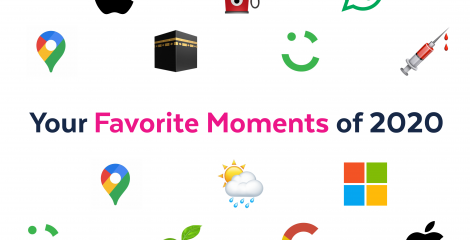The United Nations estimates there are nearly 26 million refugees around the world, half of whom are under the age of 18. To make matters worse, 85% of refugees live in developing countries that are struggling with their own socio-economic problems. This means they have a low chance of becoming financially independent.
In order for refugees to become less reliant on international aid and more economically self-sufficient, the World Food Programme (WFP) started the EMPACT project. Short for Empowerment in Action, the EMPACT project teaches digital skills to refugees.
During EMPACT’s training, refugees can learn fundamental IT skills like how to browse the web, use office software as well as perform image editing. They can then move on to more challenging areas like learning coding languages such as HTML and Python.
“Technology is changing the future of work. And there’s no reason refugees and vulnerable host communities should be left behind in the process.”
The EMPACT project
Since 2016, the project has taught over 18,000 students across 12 campuses in Lebanon and Iraq. In addition, 65% of participants have been female. The WFP hopes to train 100,000 refugees during the next five years.
In Iraq, nearly 20% of students generated income through online work and 33% found jobs within four months of graduating. Between August and October this year, 2,825 people attended training classes in the country.
Digital Skills For The Future
On the EMPACT’s website, the WFP says, “technology is changing the future of work. And there’s no reason refugees and vulnerable host communities should be left behind in the process.”
“Those with the skills to take advantage of shifting work skills have the chance to lift themselves and their families out of poverty—and to build strong foundations in their respective home and host countries. If crisis does strike, remote digital work means those who are forced to move don’t have to lose their livelihoods along with their homes. The flip-side is that in the coming years people without digital skills will fall further behind.”
Digital skills training has become more important in the Middle East and North Africa. For example, a 2017 study found that only 1.7% of the region’s workforce are classified as ‘digital talent.’ In addition, only 38% of youth think their education properly prepares them for the workplace.
Besides the WFP, other organizations and governments have launched initiatives to teach refugees and people in the region digital skills. For example, in 2017 the United Arab Emirates announced the One Million Arab Coders Initiative offering free digital skills education. Moreover, Google, which also supports the EMPACT project, has donated $2 million to INJAZ, a Jordanian non-profit organization that provides digital training in 13 countries.
For More Digital Skills Coverage Check Out:
- Grow Stronger with Google aims to accelerate the MENA’s digital transformation
- The Future of Work: Building Entrepreneurship Skills in Universities
- Google.org Awards $1 million to Injaz
If you see something out of place or would like to contribute to this story, check out our Ethics and Policy section.














